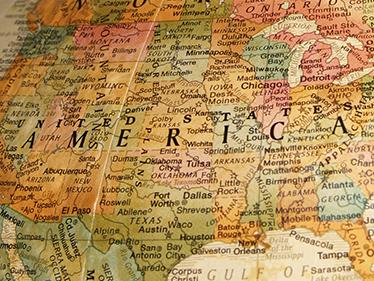Mental Health in Rural America and the Need for More Progressive Solutions
By Tiffanie de la Riva
Andrew Droz Palermo and Tracy Droz Trago’s 2014 documentary, Rich Hill, focuses on the lives of three young individuals and their families living in Rich Hill, Missouri. Rich Hill is a small town with a population of approximately 1,341, a median income just under $30,000, and a poverty rate of about 27 percent according to the Census Reporter.
The film’s audience will quickly observe the many struggles that come with living in this poor, rural area, including struggles with mental health issues. In fact, two of the three boys featured in the film are medicated for illnesses including Obsessive-Compulsive Disorder, Attention Deficit Disorder, and anger problems. Watching this film made me wonder, how prevalent is mental illness in rural areas, and what is access to mental health services like?
Mental illness is a common issue that affects approximately 25 percent of adults and 20 percent of youths in the United States. However, studies have found major depression rates in rural areas are higher than those in urban areas. Additionally, there is a higher suicide rate in rural areas. Some articles have explained that this is due to the commonness of guns and social isolation in rural areas. Whatever the explanation, it is clear that there is a need for mental health services in rural areas.
Unfortunately, there are many barriers to mental health services in rural areas. One major barrier is availability. For example, 85 percent of 1,669 federal designated mental health professional shortage areas are rural areas. With a shortage of professionals, this may mean that individuals simply do not get the help they need, or they have to travel far distances to seek help. Another factor is a lack of affordable health insurance coverage.
Suzanne Robinson of Montana was forced to deal with both these challenges when seeking help for her schizophrenic son. Suzanne reported, “If you have schizophrenia in Montana you either need good private insurance or you need a lot of money. We had neither.” At the time, there were only three Medicaid psychiatrists in the state and two were for children. She had to drive at least 85 miles to seek help for her son.
So, what can be done to improve access to mental health services in rural America? Government support is a good starting point. Last year, the USDA announced their goal of investing $50 million to increase access to mental health care in rural areas over the next three years. The funding is to be used for construction and improving of rural mental health facilities. Because a limited amount of money can only go so far, and there is a large number of people suffering from mental illnesses, more innovative ideas may be necessary.
This is where progressive ideas, such as telemedicine, should come into play. University of New Mexico’s project, Project ECHO (Extension for Community Healthcare Outcomes), is a form of telemedicine where medical specialists hold weekly virtual training sessions to discuss their current patients and determine appropriate treatments. The Robert Wood Johnson Foundation and General Electric are sponsoring a mental health clinic in New Mexico based on Project ECHO in order to help primary care doctors in rural areas in New Mexico become better educated in mental health care. This way, doctors in rural areas can provide proper mental health services, and people residing in rural areas will therefore have better access to the care they need.
Mental health is a serious problem in rural America and monetary support can only go so far. Hopefully, more private institutions take notice of the mental health crisis affecting so many people, and they are willing to take the leap and undertake projects similar to Project ECHO.
Tiffanie de la Riva is a graduate student in the UC Davis School of Law, where she is a staff editor at Business Law Journal. In 2008, she graduated from the University of Southern California with a B.S. in business. administration.
(Article originally posted at Legal Ruralism)










